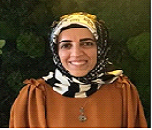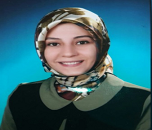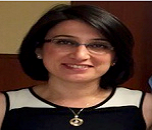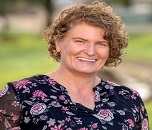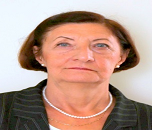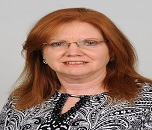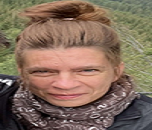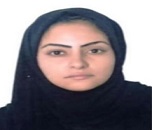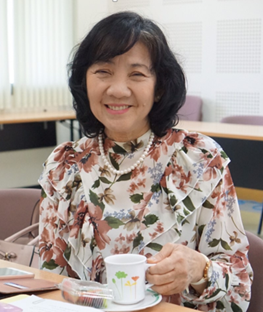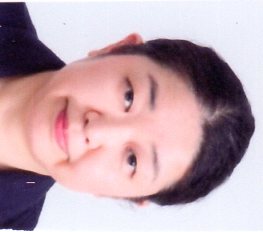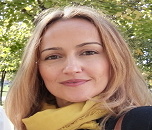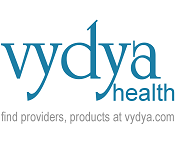
World Nursing Congress 2022 announcing 56th World Congress on Nursing & Health Care held on May 02-03, 2022 at Tokyo, Japan.
Nursing Conferences 2022 USA| Nursing Conferences 2022 Europe | Nursing Conferences 2022 Japan | Nursing Conferences 2022 Australia |World Nursing Congress 2021 | Nursing Events| International Nursing Conferences | Nursing Meetings 2022 | Health Care Conferences 2022 | Nursing Conferences | Nursing Conference 2022 China | Nursing Summit

World Nursing Congress 2022 invites you to submit abstracts on Advanced Practice Nursing, Cardiac Nursing, Clinical Nursing, Community & Family Nursing, Dental Nursing from USA, Asia, China, India, Brazil, Japan, Australia, scheduled on May 02-03, 2022 at Tokyo, Japan in Asia.
Nursing Conferences 2022 USA| Nursing Conferences 2022 Europe | Nursing Conferences 2022 Japan | Nursing Conferences 2022 Australia |World Nursing Congress 2021 | Nursing Events| International Nursing Conferences | Nursing Meetings 2021 | Health Care Conferences 2022 | Nursing Conferences | Nursing Conference 2022 China | Nursing Summit

At 56th World Congress on Nursing & Health Care, awards are given for the best Poster presentations. Students can avail this opportunity and can give 10 min presentation. World Nursing Congress 2022 provides opportunities for researchers and students to present their research work through posters.
Nursing Conferences 2022 USA| Nursing Conferences 2022 Europe | Nursing Conferences 2022 Japan | Nursing Conferences 2022 Australia |World Nursing Congress 2021 | Nursing Events| International Nursing Conferences | Nursing Meetings 2021 | Health Care Conferences 2021 | Nursing Conferences | Nursing Conference 2022 China | Nursing Summit

World Nursing Congress 2022 invites you to submit abstracts on Advanced Practice Nursing, Cardiac Nursing, Clinical Nursing, Community & Family Nursing, Dental Nursing from USA, Asia, China, India, Brazil, Japan, Australia, scheduled on May 02-03, 2022 at Tokyo, Japan in Asia.
Nursing Conferences 2022 USA| Nursing Conferences 2022 Europe | Nursing Conferences 2022 Japan | Nursing Conferences 2022 Australia |World Nursing Congress 2021 | Nursing Events| International Nursing Conferences | Nursing Meetings 2021 | Health Care Conferences 2022 | Nursing Conferences | Nursing Conference 2022 China | Nursing Summit
Theme: Innovating Nursing Through Research and Practice
World Nursing Congress 2022
ConferenceSeries llc Ltd is pleased to invite you to participate in the 56th World Congress on Nursing and Health Care (Nursing Conferences) on May 2-3, 2022 in Tokyo, Japan under the theme "Integrating Milestones nursing and health”.
The World Nursing Congress 2022 will offer cutting-edge approach experiences and expert advancements to support exceptional patient outcomes and improved care transfer over nurses. Participants will receive notification from key specialists and experts to support nurse enrollment and retention, improve patient standards and well-being, and formulate practical responses to generate interest.
Who can attend?
Renowned healthcare professionals, professors, researchers, students and delegates, who seek updates and discussions on recent trends; who wish to meet and connect with leading professionals will have excellent opportunities to quench their thirst for gaining knowledge.
- Nursing Directors
- Assistant Directors of Nursing
- Associate Directors of Nursing
- Head Nurses and Assistant Head Nurses
- Assistant Head Nurses
- Quality and Safety Managers
- Head nurses
- Senior nurses
- Nurses
- Nursing consultants
- senior matrons
- matrons
- Clinical managers
- Program managers
- Head of staff
* This conference is also open to the public and private sectors at large to encourage networking and debate.
Why attend our conferences?
- Tune in and gain from driving industry specialists over the open segment
- Systems administration openings with speakers and representatives from your segment
- Comprehend and hear prescribed best practice and contextual investigations
- We offer a scope of meetings and occasions over an assortment of parts
This World Nursing Conference 2022 is explicitly intended for the Health Sector, Nursing Homes and Hospices. This Nursing Meeting gives a chance to nursing instruction progression, improvement, promoting, and correspondences experts to share their triumphs, grow new procedures, and to set up an asset system of friends. Uniting a wide scope of master speakers from over the administration we offer top of the line gatherings and occasions. Nursing Congress bringing together a wide range of expert speakers from across the government and private sector we offer first class nursing conferences and nursing events.
Track 1: Advanced Practice Nursing
Advanced Practice Nursing (APN) is the term used to define a level of nursing practice that uses comprehensive skills, experience and knowledge in nursing care. The basis of advanced practice is the high degree of knowledge, skill and experience applied in the nurse patient/client relationship in order to achieve optimal outcomes through critical analysis, problem solving and accurate decision-making.
Track 2: Cardiac Nursing
A cardiac nurse, more commonly referred to as a cardiac care nurse, is a professional who cares specifically for patients who heart problems. While the duties and responsibilities of a nurse with this title may vary from setting to setting, CCN’s will help to treat patients who have suffered or suffer from congestive heart failure, cardiac dysrhythmia, cardiomyopathy or angina problems. The nurse may perform stress tests, complete health assessments, care for a patient after an operation, or closely monitor the patient’s heart rate.
Track 3: Clinical Nursing
A Clinical Nurse Specialist is an expert at diagnosing and treating illness in their area of expertise. Clinical Nurse Specialists focus on one of three main specialty areas: patients and their families, nurse management, and administration. The rest of the nursing staff looks to the Clinical Nurse Specialist for guidance in their practice and help with efficiency in the workplace.
Track 4: Community and Family Nursing
Nurses have always cared for individuals, families and communities in their practice. Recently, there has been an increase in the number of nurses working outside the hospital, primarily in community-based settings that focus on individuals and families. There is also increasing emphasis on community-focused nursing care with the community as the client. Moreover, public concerns regarding quality, cost, access and fragmentation of health care have contributed to a shift in care from the more traditional acute care settings to the community. This has led to changes in nursing practice.
Track 5: Dental Nursing
Dental nurses support dentists in the healthcare of patients. Their work includes helping to prepare the dental surgery and ensuring that equipment and working areas are sterile. While the dentist examines and treats a patient, dental nurses help by performing tasks such as making sure the patient is comfortable, recording the dentist's observations, passing instruments, using a suction device to remove saliva and debris from the patient's mouth, preparing materials for fillings and sterilization of instruments and infection control procedures. Health and safety for staff and patients is an important part of the dental nurse's role.
Track 6: Dermatology Nursing
Dermatology nursing specialize in the treatment and care of a variety of skin diseases and conditions. Working in a wide range of settings, including hospitals, dermatology clinics and plastic surgeons offices, dermatology nurses provide care for patients with psoriasis, skin cancer, burn wounds and acne among many other skin conditions. The field of dermatology is incredibly vast, as skin is an organ, just like the heart or kidneys and the number of diseases and disorders are just as numerous as with other organs of the body. The majority of nurses in this field work for private doctor's offices, usually with plastic surgeons or dermatologists. Those that work in plastic surgery offices generally assist with surgical and nonsurgical procedures for cosmetic issues, congenital deformities or injuries. Another professional route to take would be to work for a hospital in the burn ward. This would entail cleaning and dressing the wounds of burn patients, carefully monitoring and controlling pain, ensure patients breathing abilities and prohibiting the spread of infection.
Track 7: Diabetes Nursing
Diabetes nursing care for patients that suffer from diabetes, a condition that affects the body's ability to produce or absorb enough insulin. This includes assisting patients in monitoring their blood sugar and medications, helping to minimize diabetic nerve damage, conducting nutritional therapy, dealing with psychosocial issues and behavioral management. They also spend a considerable amount of time educating patients and families on proper dietary, exercise and lifestyle habits to keep symptoms under control. These nurses also have a specialized knowledge of the endocrine system, including the hypothalamus, thyroid, parathyroid, adrenals, pineal body and the reproductive glands. Diabetes nurses must possess excellent communication skills in order to relay information between patients, physicians, family members and even insurance companies. They must also be compassionate as they are dealing with a disease that is often chronic and can be life threatening. Many diabetes nurses become advocates for diabetes awareness and even go on to become diabetes educators.
Track 8: Disaster and Emergency Nursing
Disaster and Emergency Nursing play in emergency preparedness and disaster management in local and international settings. Areas of focus include the role in planning, partnerships, disaster response, and delivery of services. They will help to develop a plan including the essential elements of leadership and management for nursing in disaster prevention, preparedness, response and recovery; explain the concept of a safe hospital in disaster and the safe hospital index; analyze strategies for investing in a disaster informed nursing workforce within local and international settings; evaluate the resources available to enhance the resilience of the nursing workforce in disaster; identify when community resilience is compromised and what is needed to build that resilience; analyze the competing issues of core competencies, expanded scope of practice and ethical practice in the context of response for nurses; conceptualise the value of using a disaster research framework for a research study of a mass casualty incident; identify the special needs of vulnerable populations in disaster situations.
Track 9: Exercise and Sports Medicine
Sport and Exercise Physicians are medical doctors with specialist training in the management of sports injuries and illnesses, as well as the development of specific exercise programs tailored to each individual’s personal needs and limitations. Doctors have experience looking after elite athletes and apply these principles to the management of all patients, whether they are recreational athletes, manual workers or those with chronic diseases simply wanting to safely increase their activity levels.
Track 10: Gastroenterology Nursing
Gastroenterology Nurses are also known as endoscopy nurses. They diagnose and treat patients experiencing problems with their digestive system and gastrointestinal tract. They also teach patients how to manage their symptoms in their daily life. In the case of extreme conditions, will assist physicians in surgery. They also work with computerized topography scans and x-ray technology to monitor and help diagnose their patients, and of course they keep patients informed and educated about their conditions and the treatments that they will need to undergo. A gastroenterology nurse may also be called in to assist gastroenterologists, surgeons, physicians and nutritionists if a situation calls for it.
Track 11: Genetic Nursing
A genetics nurse cares for patients who are at risk for, or are affected by, a genetic disease or condition. They provide direct patient care, perform and analyze genetics risk assessments and educate patients and families on their risk profiles for various genetic conditions and how this risk may impact their ongoing health management. A genetic nurse can work in a variety of settings, including specialty genetics clinics where gene-based diagnoses and therapies are offered, prenatal and reproductive specialty centers, hospitals, cancer centers, and specialty medical practices. Many genetics nurses work in a particular sub-specialty of medicine where genetics play an important role, such as obstetrics and reproduction, oncology, mental health and pediatrics.
Track 12: Geriatrics and Gerontology Nursing
A geriatric nurse is a specialist who will help elderly patients recover from illness or injury by providing practical care and developing patient care plans. They may also help with rehabilitation and conduct check-ups in skilled care facilities or hospice facilities. While many specialists in this field administer medication and assist with pain management, they are also trained to focus on preventative care so that their patients are able to avoid injuries and common medical conditions that develop most commonly later in life.
Gerontological Nursing provides an opportunity to explore the challenges of aging through the lens of transitions. They examine how aging adults respond to transitions such as health challenges, changes in living environments, existential issues, family issues, and dying and death. While physical health issues are addressed, the major emphasis lies in how older adults understand and process transitions in older years and how nurses can facilitate the process for their patients or clients and family members. We also examine the challenges faced by emerging sub-populations of aging adults, such as those with developmental disabilities, the incarcerated, the homeless, as well as those with HIV/AIDS.
Track 13: Mental Health and Psychiatry Nursing
Psychiatric nurses are experts in crisis intervention, mental health, medications and therapies to assist patients in mastering mental illnesses. They work closely with them so that they can live as productive and fulfilling lives as possible. A psychiatric nurse starts her work with a patient by interviewing her and assessing the new patient to learn her symptoms, history, illnesses and daily living habits. A psychiatric nurse will usually work with a person who has anxiety disorders, such as panic attacks and various phobias, mood disorders, including bipolar disorder and depression. A psychiatric nurse works closely with her treatment team to develop an individualized plan to give the patient the total care and attention they need to live a productive life. The nurse will provide individual counseling to the patient as well as the family so that they have a better understanding of the illness. The nurse may also help the patient to dress, groom and to take their medications properly.
Track 14: Midwifery Nursing and Women’s Health
Nurse-midwives provide primary care to childbearing individuals in a variety of inpatient and outpatient settings including hospitals, homes, and birth centers. They provide care that is informed by a core belief that birth is a physiologic process and that all physiologic processes should be supported by a wellness focus, including health promotion and disease prevention. A registered nurse who has completed advanced education with a focus on the primary health care needs of women across the life cycle, with emphasis on conditions unique to women from menarche through the remainder of their lives also create a caring environment and establish a connection with a woman and her family to provide individualized care that minimizes unnecessary interventions while offering the same tests, medications and procedures as their physician counterparts. They also provide gynecologic care and family planning, and consult with our board-certified OB/GYN physicians and other specialists as needed.
Track 15: Nephrology Nursing
Nephrology nursing involves both preventing disease and assessing the health needs of patients and families. Care spans the life cycle and involves patients who are experiencing the real or threatened impact of acute or chronic kidney disease; therefore nephrology nurses must be well-educated, highly skilled, and motivated. These nurses also deal with every organ system in the body, calling for a holistic approach to patient care that is both challenging and rewarding. Driven by technological and educational advances, nephrology nursing continues to be a dynamic field with a wide variety of career opportunities for nurses at all levels.
Track 16: Obstetrics and Gynaecology Nursing
Obstetrics and gynecology nurses are also known as OB nurses, OB GYNs, and perinatal nurses. These professionals work with women during pregnancy, labor, and childbirth, and provide postpartum care. The role of the OB nurse is critically important during the volatile months of pregnancy; OB GYNs provide support to women as they transition to motherhood and experience a wide array of physical and emotional changes. An OB GYN employed at a private obstetrics and gynecology practice assists the physician in routine wellness procedures, provides patients with birth control information, and cares for patients during pregnancy.
Track 17: Oncology Nursing
An oncology nurse provides care for patients who either have cancer or are at risk of developing it. For cancer patients who are critically and chronically ill, these types of nurses monitor their physical conditions and symptoms, create management strategies and prescribe medication, and administer treatments such as chemotherapy. For patients at risk of developing cancer, they provide counselling services in cancer prevention, screening and detection. Advanced practice oncology nurses not only serve patients as caregivers but educators, consultants and researchers. To provide their patients with the best care possible, they consult and collaborate with other health care providers about heath care plans and treatments. Oncology nurses strive to educate their patients by providing them with the most relevant and current information about their conditions. As researchers, they identify and examine problems in order to improve cancer treatments through significant findings.
Track 18: Paediatric Nursing
Paediatric nurses care for patients ranging from infancy to late adolescence. They work closely with other healthcare professionals, such as family doctors, pediatric physicians and other nurses, to provide preventative and acute care. Typical duties include conducting routine developmental screenings, "well child" examinations, administration of immunizations, and the diagnosis and treatment of common childhood illnesses, such as chickenpox, ear infections and tonsillitis. Pediatric nurses also work closely with patients' families, educating them about the role of health during child development and bringing awareness to issues that are vital during childhood, such as child disease prevention, proper nutrition, and growth and development.
Track 19: Perioperative (Surgical) Nursing
Surgical nurses, often called medical-surgical nurses, are specially trained to provide nursing care for patients before, during and after surgery. They are valued members of a medical facility's surgical team who assist surgeons, anesthesiologists, and other health care professionals during surgical procedures. Surgical nurses must have a broad range of skills, as they work with patients with various acute conditions and chronic illnesses. Surgical nursing is the oldest nursing specialty, and medical-surgical nurses make up the lion's share of all nurses in the U.S. Before surgery, a surgical nurse explains to the patient how the procedure will go, answering any questions they have and informing them of any risks. After surgery, they manage a patient's post-operative care, which includes pain relief and positioning of the patient, as well as close monitoring for signs of complications. They take medical histories and clear patients for surgery. During surgery, they sterilize the surgical area, pass instruments to the physician, monitor vital signs, and perform certain medical tasks at the surgery site.
Track 20: Tele Nursing & Travel Nursing
Telemetry Nurses, or TELE, are specialists in the monitoring of patients requiring a high degree of vigilance. These are often patients who have been released from Intensive Care, those on essential life support following a serious illness, or those in whom a heart condition is suspected or diagnosed. RNs in the Telemetry Unit are responsible for comfortably and accurately connecting patients to machines to measure heart rate, breathing, blood pressure, and collect electrocardiogram data.
Related Conferences:
40th World Nursing and Healthcare Conference, March 29-30, 2021 Prague, Czech Republic; 28th International Congress on Nursing and Primary Health Care, May 03-04, 2021 Rome, Italy; 23rd Global Nursing Education, Healthcare and Patient Safety Conference, May 10-11, 2021 Copenhagen, Denmark; 52nd International Conference on Advanced Nursing Research, June 07-08, 2021 Zagreb, Croatia; 7th International Conference on Advancements in Nursing Research and Care, June 15-16, 2021 London, UK.
Associations & Societies:
Australian Nursing & Midwifery Federation, Singapore Nurses Association, Adventist Nursing & Rehabilitation Centre, Singapore Nursing Board, Association of Maternal & Child Health Programs, Association of Women’s Health, Obstetric and Neonatal Nurse, National Association of Neonatal Nurses, Asia Pacific Pediatric Nurses Association, Emirates Nursing Association, European Federation of Nurses Associations, European Society of Gastroenterology and Endoscopy Nurses and Associates, International Society of Nurses in Genetics Advanced Nursing Research
Track 21: Nursing Education and Practice
Nurse Education consist within the theatrical and practical training provided to nurses with the aim to organize them for his or her duties as medical care professionals. Nurse role is to advocate and look after individuals of all ethnic origins and non-secular backgrounds and support them through health and illness e.g. A RN (RN) meets the wants outlined by a rustic, state, province or similar licensing body to get a nursing license. Nursing offers a good range of career opportunities—from entry-level practitioner to doctoral-level researcher. Nursing education is education associated with the practice of being a medical doctor where various teaching methodologies are utilized.
- Nursing Role
- Medical Education
- Nursing Care Professionals
- Clinical Research
- Registered Nurses
- Nursing Students
World Nursing Congress 2022 welcomes all the attendees, researchers, presenters, associations and exhibitors from all over the world to Webinar. We are delighted to invite you all to attend the “56th World Congress on Nursing & Health Care” which is going to be held during May 02-03, 2022 at Tokyo, Japan. This Congress Committee is gearing up for an exciting and informative conference program including plenary lectures, symposia, workshops on informative topics, poster presentations and various programs for participants from all over the world. We invite you to join us at the World Nursing Congress 2022 to share meaningful experience with scholars from around the world.
For more info: https://nursingcongress.nursingconference.com/
Market growth of Nursing Care Research in the last and upcoming ten years:
The past three decades have witnessed a remarkable growth in nursing Care development. In both Korea and the United States, nurse scientists are poised to address important issues related to the prevention and management of significant health care problems. The need for greater nursing Care development in the areas of self-management, genetics, and geriatrics, health promotion across the lifespan, technology, and mental health are briefly highlighted. Future research efforts will be enhanced by interdisciplinary collaboration and the creation of international nursing research centers. At the same time, we need to remain cognizant of the importance of mentoring future nursing Care.
Market Insights:
Globally:
The global long term care market size was valued at USD 705 billion in 2015 and is expected to grow at a CAGR of around 5% over the forecast period. In September 2015, the Housing America’s Older Adults-Meeting the Needs of an Aging Population and Harvard Joint Center concluded in their new research that by 2030, the percentage of people aged over 50 in the U.S. is expected to exceed by 70%. Moreover, in January 2016, the AARP declared a free income tax assistance service for people aged 60 and above. The out-of-pocket burden for long term care facilities is high, especially for the nursing care.
North America dominated the long term care market in 2015 owing to the increasing aging population, government funding, and the implementation of the streamlined regulatory framework. Around 60% of the funding for long term care in the U.S. comes from the Medicaid. By 2050, it is expected that one in five Americans would be at least 65 years of age. The funding is set to increase with the implementation of the Patient Protection and Affordable Care Act.
Asia Pacific:
Asia Pacific is expected to grow at the fastest CAGR of 6.2% over the forecast period owing to the increasing number of people diagnosed with chronic illnesses. Moreover, international care homes are also investing in countries such as India and Japan. For instance, in October 2013, BAYADA Home Health Care, a home healthcare giant based in the U.S. acquired 26% stake of India Home Health Care (IHHC).In India, 65% of the hospital visits can be managed at home. In May 2016, My Care Line raised USD 526,000 for its alliance with Hoffman World. The Spanish Company provides Hoffman methodology of rehabilitation. In India, Portea is one of the market leaders in the home healthcare industry. In September 2015, Portea raised USD 37.5 million for investing in better home healthcare facilities.
Competitive Market Share Insights:
- Brook dale Senior Living, Inc.,
- Sunrise Senior Living, Inc.,
- Emeritus Corporation,
- Atria Senior Living Group,
- Extendicare, Inc.,
- Gentiva Health Services, Inc.,
- Senior Care Centers of America,
- Kindred Healthcare, Inc.,
- Genesis Healthcare Corp.,
- Home Instead Senior Care, Inc.
Industry Report - Industry SWOT Analysis Chapter
The Nursing Care Facilities industry is in the mature stage of its life cycle. Over the 10 years to 2021, industry value added (IVA), which measures the industry's contribution to the US economy, is expected to grow at an average annual rate of 3.4%. This growth rate indicates that the industry will expand faster than GDP, which is projected to increase at an annualized rate of 2.2% over the same period. While demographic trends will continue to promote industry growth, nursing care facilities have been part of American communities since the early 20th century.
Industry Analysis & Industry Trends:
Over the five years to 2021, the industry is expected to continue expanding. Continued aging of the population, which is expected to accelerate over the five-year period, will drive industry growth.
Global Skilled Nursing Care Services Market, By Type of Connectivity-
- Connected to hospital
- Connected to assisted living community
- Connected to both hospital and assisted living community
- Freestanding
Major regions analysed under this research are:
- Europe
- North America
- Asia Pacific
- Rest of the World
- Australia
Non-Federal Research Associations and Foundations:
- Oncology Nursing Society Foundation
- American Nurses Foundation (ANF)
- National Institute of Nursing Research (NINR)
- Sigma Theta Tau International Honor Society of Nursing (STTI)
Research Positions:-
- Research Nurse
- nurse practitioner (NP)
- certified registered nurse anaesthetist (CRNA)
- clinical nurse specialist (CNS)
- certified nurse midwife
Universities in Japan:
- Aichi Kiwami College of Nursing.
- Aichi Prefectural College of Nursing & Health.
- Akita University of Nursing and Welfare.
- Aomori University of Health and Welfare.
- Asahikawa Medical University.
- Japan University of Health Sciences
- Japanese Red Cross Akita College of Nursing
- Japanese Red Cross College of Nursing
- The Japanese Red Cross Hiroshima College of Nursing
- Japanese Red Cross Hokkaido College of Nursing
- The Japanese Red Cross Kyushu International College of Nursing
- Japanese Red Cross Toyota College of Nursing
Nursing Universities Globally:
- CMC Vellore College of Nursing
- Duke University School of Nursing
- Yale School of Nursing
- School of Nursing, University of Washington
- School of Nursing, University of Michigan
- University of Edinburgh Nursing School
- School of Nursing Johns Hopkins University
- School of Nursing, Midwifery and Social Work at University of Manchester
- School of Nursing, University of Pennsylvania
- University of Toronto
- Karolinska Institute
- King's College London (KCL)
- University of Manchester
Associations and Societies globally
- Canadian Nurses Association
- Indian Nursing Council
- Japanese Nursing Association
- Nursing Association of Nepal
- Nursing Council of New Zealand
- Nursing and Midwifery Council
- New Zealand Nurses Organization
- Philippine Nurses Association
- Philippine Nurses Association of United Kingdom
- Nursing & Midwifery Council United
- Sigma Theta Tau International Honor Society of Nursing
Conference Highlights
- Advanced Practice Nursing
- Cardiac Nursing
- Clinical Nursing
- Community and Family Nursing
- Dental Nursing
- Dermatology Nursing
- Diabetes Nursing
- Disaster and Emergency Nursing
- Gastroenterology Nursing
- Genetic Nursing
- Geriatrics and Gerontology Nursing
- Mental Health and Psychiatry Nursing
- Midwifery Nursing and Women’s Health
- Nephrology Nursing
- Obstetrics and Gynaecology Nursing
- Oncology Nursing
- Pediatric Nursing
- Perioperative Nursing
- Tele Nursing & Travel Nursing
- Nursing Education and Practice
- Advanced Healthcare Practice & Management
- Healthcare Innovations and Technologies
- Public Health and Community Medicine
To share your views and research, please click here to register for the Conference.
To Collaborate Scientific Professionals around the World
| Conference Date | May 02-03, 2022 | ||
| Sponsors & Exhibitors |
|
||
| Speaker Opportunity Closed | |||
| Poster Opportunity Closed | Click Here to View | ||
Useful Links
Special Issues
All accepted abstracts will be published in respective Our International Journals.
Abstracts will be provided with Digital Object Identifier by

